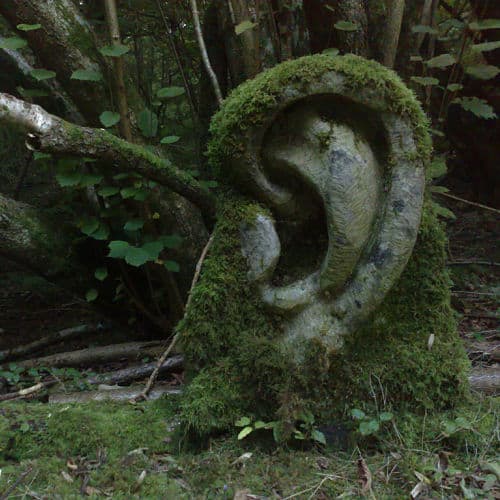What’s that sound? The sound of happy students swimming in dissertations, papers, exams? The sound of a faculty drowning in a marking tsunami? The sound of freshly unemployed academic precariats slowly floating towards insecure middle age with no job prospects, pension plan or direction in life…? Yes it’s the sound of summer!
But just because you’re sitting by the beach with your toes in the sea it doesn’t mean your brain can survive on just pulp fiction and pop music. You need some anthropological stimulation for those long summer days. And so, along with our good friends New Books in Anthropology we are happy to offer you some of the choicest interviews with anthropologists about their (amazing) new books. Enjoy!
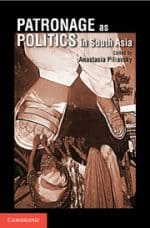 Patronage as Politics in South Asia edited by Anastasia Piliavsky
Patronage as Politics in South Asia edited by Anastasia Piliavsky
(Cambridge University Press, 2014)
Does patronage always imply a corruption of democratic political processes? Across sixteen essays by historians, political scientists and anthropologists Patronage as Politics in South Asia (Cambridge University Press, 2014), edited by Anastasia Piliavsky, explores this question and many more across a range of historical and cultural contexts.
Interview by Ian M. Cook
Listen here or here:
 Tourist Attractions: Performing Race and Masculinity in Brazil’s Sexual Economy by Gregory Mitchell
Tourist Attractions: Performing Race and Masculinity in Brazil’s Sexual Economy by Gregory Mitchell
(University of Chicago Press, 2015)
From the saunas of Rio de Janeiro, to the Amazonian eco-resorts of Manaus, and the Afro-Brazilian heritage of Bahia, Gregory Mitchell’s Tourist Attractions: Performing Race and Masculinity in Brazils Sexual Economy explores sex as a way of knowing. The book explores the individual experiences and identities of male sex workers and their transnational clients, proposing that sex work be reframed as a form of performative labor. Interview by Taylor Fox-Smith
Listen here or here (direct link to player).
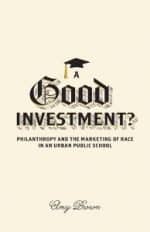 A Good Investment? Philanthropy and the Marketing of Race in an Urban Public School by Amy Brown
A Good Investment? Philanthropy and the Marketing of Race in an Urban Public School by Amy Brown
(University of Minnesota Press, 2015)
How much does competition for financing in America’s urban public schools depend on marketing and perpetuating poverty in order to thrive? Are the actors in this drama deliberately playing up stereotypes of race and class? A Good Investment? Philanthropy and the Marketing of Race in an Urban Public School (University of Minnesota Press, 2015) offers a firsthand look behind the scenes of the philanthropic approach to funding public education a process in which social change in education policy and practice is aligned with social entrepreneurship. Interview by James Stancil
Listen here or here (direct link to player).
 Reengineering India: Work, Capital, and Class in an Offshore Economy by Carol Upadhya
Reengineering India: Work, Capital, and Class in an Offshore Economy by Carol Upadhya
(Oxford University Press, 2016)
How is India’s burgeoning IT industry reshaping the country? What types of capital is IT attracting and what formations does it take? How are software engineers managed? What are their goals and aspirations? How are they perceived by their foreign clients? In her new book, Reengineering India: Work, Capital, and Class in an Offshore Economy (Oxford University Press, 2016), Carol Upadhya tackles these questions, exploring the way capital, work and class are remade within the “new India.” Interview by Ian M. Cook
Listen here or here (direct link to player).
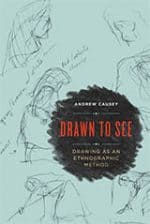 Drawn to See: Drawing as Ethnographic Method by Andrew Causey
Drawn to See: Drawing as Ethnographic Method by Andrew Causey
(University of Toronto Press, 2016)
In his new book Drawn to See: Drawing as an Ethnographic Method (University of Toronto Press, 2016) Andrew Causey argues that social science practitioners can cultivate new ways of experiencing the world through drawing. He has developed thirty-nine “etudes,” drawing exercises that challenge the reader to become a more rigorous observer and to transform their relationship with both visual media and academia. These etudes have been tried and tested over many years in his class, Visual Anthropology, at Columbia College – Chicago. Interview by Sarah Hertel-Fernandez
Listen here or here (direct link to player).
 Forests are Gold: Trees, People and Environmental Rule in Vietnam by Pamela McElwee
Forests are Gold: Trees, People and Environmental Rule in Vietnam by Pamela McElwee
(University of Washington Press, 2016)
Why does Vietnam simultaneously plant and cut trees at unprecedented rates; and, if reforestation projects that clear native species and mono-crop Australian exotics do not protect habitat, what do they aim to achieve? To answer these questions, Pamela McElwee proposes a cogent new schema for what she terms environmental rule, whereby projects whose primary goals lie in social planning are represented and justified ecologically. Interview by Nick Cheesman
Listen here or here:
 The Depths of Russia: Oil, Power, and Culture after Socialism by Douglas Rogers
The Depths of Russia: Oil, Power, and Culture after Socialism by Douglas Rogers
Cornell University Press, 2015
Ever since the accidental discovery of oil in Perm in 1929, the so-called “Second Baku” has been known to be an industrial hub as well as the home to a GULAG labor camp. In post-Soviet times, however, Perm has become a new cultural center on Russia’s map. In his book The Depths of Russia: Oil, Power, and Culture after Socialism (Cornell University Press, 2015), Douglas Rogers argues that Lukoil oil company’s cultural activities helped to recast the Soviet-era identity formation patterns and facilitated Perm’s regaining its cultural authenticity and belonging after the collapse of the Soviet Union. Interview by Olga Breininger-Umetayeva
Listen here or here:
 Activist Archives: Youth Culture and the Political Past in Indonesia by Doreen Lee
Activist Archives: Youth Culture and the Political Past in Indonesia by Doreen Lee
(Duke University Press, 2016)
Activist Archives: Youth Culture and the Political Past in Indonesia (Duke University Press, 2016) is a book about Indonesian youth activism both before 1998 and after. But it is no ordinary chronological study, a story told in halves with Soeharto’s end days in its interval. Rather, following a cue from her interlocutors, Doreen Lee enfolds the past into the present by attending to how urban activists in the post-New Order and post-reformasi eras have created a sense of belonging here and now. Interview by Nick Cheesman
Listen here or here:
 Caring for Strangers: Filipino Medical Workers in Asia by Megha Amrith
Caring for Strangers: Filipino Medical Workers in Asia by Megha Amrith
(NIAS Press 2017)
Filipinos today comprise one of the largest global diasporas of medical workers, with the Philippines having over 400 nursing colleges, many of them aimed primarily at preparing graduates for work abroad. But as the book’s subtitle indicates, it is a diaspora that stretches not only beyond but also across Asia. And whereas other studies have looked at the political economy of care in the West, Caring for Strangers is an ethnographic exploration of Filipino medical workers in Singapore. The story it tells is one of a community of women, and a few men, occupying an ambiguous space somewhere in-between their local counterparts on the one hand and tens of thousands of unskilled Filipino migrant workers on the other; between exhausting and demanding roles as care-givers for Singaporeans in hospitals and hospices, and high expectations of professional development; and, between nursing as a calling, and aspirations for a better life of consumption and modernity somewhere else. Interview by Nick Cheesman
Listen here or here (direct link to player).
 Placing Outer Space: An Earthly Ethnography of Other Worlds by Lisa Messeri
Placing Outer Space: An Earthly Ethnography of Other Worlds by Lisa Messeri
(Duke University Press, 2016)
What kind of object is a planet? Lisa Messeri’s new book asks and addressed this question in an ethnography that explores how scientific practices transform planets into places and helps us understand why that matters not just for how we understand outer space, but also for how we understand the Earth and ourselves. Based on 15 months of participant observation in 2009 and 2010 that included interviews, involvement in research projects, conferences, email exchanges, informal chats, and more, Placing Outer Space: An Earthly Ethnography of Other Worlds (Duke University Press, 2016) guides readers through four different field sites in order to analyze the significance of four different activities of place-making therein: narrating, mapping, visualizing, and inhabiting. Interview by Carla Nappi
Listen here or here (direct link to player).
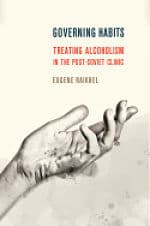 Governing Habits: Treating Alcoholism in the Post-Soviet Clinic by Eugene Raikhel
Governing Habits: Treating Alcoholism in the Post-Soviet Clinic by Eugene Raikhel
(Cornell University Press, 2016)
Eugene Raikhel tells us the tale of how the Soviet discipline of “narcology”–the diagnosis and treatment of addiction– evolved during Soviet times and how it adapted after the USSR fell. Russians treated and continue to treat alcoholism quite differently from how people do in different parts of the world though that’s now changing. Interview by Marshall Poe
Listen here or here (direct link to player).
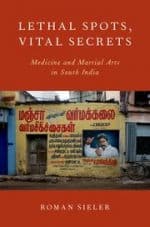 Lethal Spots, Vital Secrets: Medicine and Martial Arts in South India by Roman Sieler
Lethal Spots, Vital Secrets: Medicine and Martial Arts in South India by Roman Sieler
(Oxford University Press, 2015)
Roman Sieler’s Lethal Spots, Vital Secrets: Medicine and Martial Arts in South India (Oxford University Press, 2015) is a fine-grained ethnographic study of varmakkalai–the art of vital spots, a South Indian practice that encompasses both martial and medical activities. The interview explores how varmakkalai relates to the wider field of manual therapies and martial traditions in the subcontinent, the theories that inform the practice, the relationship between healing and fighting, as well as the role of secrets. Interview by Ian M. Cook
Listen here or here:
Featured photo by Colin Mutchler (flickr, CC BY 2.0)

